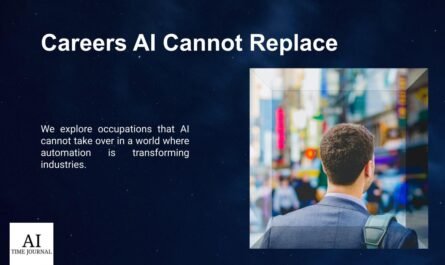**AI Coding Tools May Save Time, But Traditional Learning Offers Deeper Understanding**
A fascinating experiment conducted at the Massachusetts Institute of Technology (MIT) has sparked an important discussion in educational and technical circles about the role of artificial intelligence (AI) in coding. In this study, three student teams were tasked with writing software code in Fortran, a language none of them had any prior experience with. The experiment, set up to examine how different tools impact learning and problem-solving, delivered intriguing results that highlight the strengths and limitations of AI in coding.
The first team used ChatGPT, an advanced language model AI, to guide their coding process. The second team utilized Code Llama, a specialized AI coding assistant, while the third team relied solely on traditional methods, including Google searches, to break down the task and solve it step by step. As expected, the team using ChatGPT finished first, followed by the team using Code Llama. The group using only Google search finished last, but this wasn’t the whole story. When it came time to test each team’s ability to recall their work and solutions, the results flipped dramatically.
The ChatGPT-led team, which completed the task in record time, struggled when asked to recall how they approached and solved the coding problems. None of the team members could remember the solutions they had implemented. On the other hand, about half of the students in the Code Llama group passed the recall test, but the real surprise came from the Google search team, where every member successfully recalled their solutions and process. This outcome underscores the difference between swiftly finishing a task with AI assistance and truly understanding and retaining the skills needed to solve complex problems.
The implications of this experiment are broad, particularly in the context of how artificial intelligence is increasingly becoming a tool for developers, engineers, and even non-programmers. AI tools like ChatGPT and Code Llama can rapidly generate solutions to coding problems, sometimes faster than traditional methods. This is especially appealing in a fast-paced industry where developers are often expected to deliver results quickly. But while AI can help save time, the experiment demonstrates that it does not always foster deeper learning. The struggle and frustration that come with solving a problem manually may be critical in solidifying the knowledge required to tackle similar challenges independently in the future.
Experts argue that there is no substitute for the hands-on experience of working through a coding challenge. As AI technologies improve and become more integrated into the development process, there is a risk that over-reliance on these tools might undermine the deeper understanding of core coding principles. Many experts believe that while AI can complement the learning process, the foundation of computer science skills must still be built the traditional way—through hard work, trial and error, and persistence.
The educational lesson from MIT’s experiment is clear: developers must engage deeply with the material they are learning, even if that means spending more time wrestling with problems before finding solutions. This approach ensures that developers retain what they have learned, and it prepares them for future challenges that cannot simply be solved by asking an AI tool for help.
As AI coding assistants like ChatGPT and Code Llama become more sophisticated, their role in development workflows will undoubtedly grow. These tools are expected to enhance productivity, allowing developers to focus on higher-level tasks while letting AI handle the more tedious aspects of coding. However, even the most advanced AI systems cannot replace the need for a solid foundation in computer science principles. Learning to code from the ground up, making mistakes, debugging, and refining solutions are essential skills that cannot be skipped, no matter how advanced AI becomes.
Industry leaders are already paying attention to this dynamic. Some companies are beginning to place more emphasis on hiring developers who not only know how to use AI coding tools but who also possess strong problem-solving abilities rooted in traditional methods. These developers will likely be more valuable in the long run, as they will be better equipped to handle challenges that require more than just following AI-generated instructions.
MIT’s experiment serves as a cautionary tale for students, educators, and professionals alike. AI can undoubtedly enhance learning and productivity, but it must be used wisely. Relying too heavily on AI to do the hard work can lead to superficial knowledge and poor retention of critical skills. This is particularly true in fields like software development, where understanding the underlying logic and mechanics of coding is crucial to success.
The findings from this experiment also raise questions about how AI should be integrated into educational systems. Should AI tools be allowed to play a larger role in classrooms, or should their use be restricted to ensure students develop strong problem-solving abilities independently? These are questions that educators and policymakers will need to address as AI continues to evolve.
As AI coding tools become more commonplace, there is little doubt that they will transform the way coding is taught and practiced. However, MIT’s experiment demonstrates that hard work, persistence, and hands-on learning remain as valuable as ever. Developers who understand this will not only excel in their field but will also be better positioned to use AI tools effectively when necessary.





